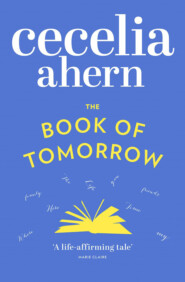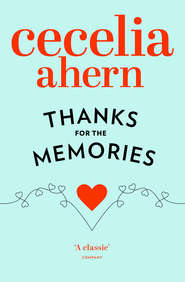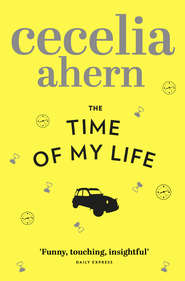По всем вопросам обращайтесь на: info@litportal.ru
(©) 2003-2025.
✖
Lyrebird: Beautiful, moving and uplifting: the perfect holiday read
Автор
Год написания книги
2019
Настройки чтения
Размер шрифта
Высота строк
Поля
Rachel and Solomon look away from one another to avoid laughing aloud.
‘If there was no executor, then an administrator would be appointed. An administrator would be next of kin. The reason I’m saying all of this is because you could be entitled to this land and property, Laura. If there’s money in a bank somewhere, or investments or a pension, then that could be yours too. I can help you look into it, if you like.’
‘Thank you.’ She leaves a long silence. She stops and bends to pick a freesia, she twirls it around in her fingers. Rachel moves to capture Laura’s shadowed silhouette in the path of the sunlight, the sun’s harshness dims and then burns behind the trees as they move, like the light on a lighthouse.
Laura moves again, faster this time. ‘Gaga didn’t have anybody else. She was an only child. Her parents long gone. She was born in Leeds, she left school at fourteen, worked in a factory, sewing. She moved to Ireland to mind children for a family nearby, but she didn’t stay with them for long. The summer she arrived, she met Granddad …’ She looks up at the house as it comes into view. She catches her breath.
Solomon gets ready to steady her. At any moment he will reach out, dive forward to catch her.
Silence.
Rachel moves behind her. Dips the camera low. Laura’s view of the house.
Solomon wants to see her face, but he must stay behind the camera. He studies her, takes in everything about her. How her shoulders have risen, frozen, stiff. Her fingers have stopped twirling the freesia. It falls to the ground, lands beside her boot. He listens to her breathing in his headphones. Quick shallow breaths.
Solomon drags his eyes away from Laura to take in the view. The grass has grown so tall it reaches the windows of the bungalow. It’s far from a fairytale: brown bricks, flat roof, front door and two windows either side. Nothing enchanting about it and yet, for Laura, it’s a treasure trove of precious moments.
He expects her words to be as predictable as Bo’s words when she lifted her first award: ‘Gosh, it’s heavy,’ words he teased her about as soon as she’d returned with the first piece of crystal in her hand. She never said it after that, more eloquent, more trained, less surprised. He imagines Laura’s gentle wonderment – ‘It’s shrunk, it’s smaller than I imagined,’ the usual words of an adult returned to a childhood place – but the sight of it brings her somewhere else, a surprising comment.
‘Gaga wouldn’t have left this for me,’ Laura says firmly, ‘because there is no record of me. The only people who ever knew that I existed are dead.’ She speeds up away from them and wanders through the long grasses towards the house. Rachel looks at Solomon in alarm.
‘Did she just say nobody knew she was alive?’ Rachel asks in a low voice, as they cut for a moment.
Bo nods, not at all surprised, but her pupils are large and dilated with excitement. ‘I’ve been asking around the town and not one person I spoke to knew that Isabel Murphy or Isabel Button, as she preferred to be called, had a baby. In fact they all found it laughable.’
Rachel frowns. ‘So is she lying?’
Solomon looks at Rachel, at first angry at her disloyalty but then remembers Rachel is always rational and her question was a sensible one. He panics a little, at the thought that this woman he has grown so attached to, in his mind at least, could be concocting this entire story. He was completely sucked in. While everything spirals away from him, Bo rescues him, reins him in and says something to make him love her all the more.
‘I’ve listened to everything that everyone has had to say about this family, which believe me is a lot of crazy shit, and it’s not that I don’t believe them but I do believe every single word Laura’s saying,’ Bo says firmly. She hurries away to keep up with Laura.
Laura tries the handle on the front door but it’s locked. She looks in the windows of the bungalow, every single one, pushing her face up to the dirty glass, hands blocking out the sunlight. The glass is so grimy you can barely see inside. She walks around the back of the house.
‘Which was your bedroom?’ Bo asks, appearing.
‘This one.’
Inside is an iron bed, no mattress, a wardrobe stripped of its doors. The rest is empty, no trace of Laura’s life. Solomon tries to read her face, tries to get the best angles, but Rachel looks at him annoyed, he’s blocking the light, getting in her way, straying off course.
Finally, he places his equipment down. He unties his sweater from around his waist and wraps it around his arm and elbow.
The glass smashes. Bo, Rachel and Laura turn to him in surprise.
‘Now it’s open,’ he says.
Laura grins at him.
‘Tell us about living here, in whatever way you like,’ Bo says as they settle down outside, after their walk around the mostly rat-infested bungalow. Bo finds a beautiful setting in the long grass, the house and forest behind them. It’s a warm summer day, it’s heavy, as though a thunderstorm looms, and the sky is filled with fast-moving clouds that disappear quickly into the next parish, as if they know something that everything that’s still doesn’t. It looks great on camera. Laura sits on a stool, Bo before her, but off camera. And with the usual prompts to tell the interviewee to try to put the question in their answer for the ease and flow of the documentary, they begin.
‘It hasn’t changed at all,’ Laura says closing her eyes and breathing in. ‘It feels the same. When I close my eyes anyway.’
‘How do you feel about seeing the house like this?’
Laura looks at the house as though it’s a stranger to her. ‘It’s not how I remember. It was never immaculate, Gaga and Mum were house proud, but in a different way. There were always things everywhere: glass jars, collections of things in them, twine, buttons, herbs, stones, fabrics. Potions, lotions, emotions …’ She smiles as if remembering a private joke. ‘That’s what Gaga always said about the house. The three of us filled the house with potions, lotions and emotions.’
‘Gaga and your mum – can I call her Gaga? – ran a dressmaking and alterations business. I spoke to people who live locally, they said it was a successful business, popular.’
Both last night and this morning, Bo had disappeared from the hotel to do ‘research’. It had been left to Solomon to entertain Laura, they’d played cards until Bo returned at midnight, with the smell of beer on her breath and smoke on her clothes. Solomon had been disappointed when she’d returned. He’d wanted more time with Laura, listening to her sounds, her mimicking the sound of the cards shuffling, the ice in his glass melting to find a new place to settle. It was like music. Her company was relaxing, slow, nothing urgent or panicked. Time was no issue, it was as if it didn’t exist. She’d no phone to check, no watch on her wrist. She was simply there, present in the now, the soft line of her mouth, the way her long hair brushed and tickled his arm as she reached across for the cards. Everything subtle was big. His heart had never felt so content yet fluttered so much at the same time. It is only when he is away from her that the guilt, the conflict, the comparison to Bo begins, the inner silent terror that leaves him feeling cold.
‘They ran a successful business,’ Laura agrees. ‘They had a loyal base of customers that they made dresses for – weddings, communions, parties … With so many huge families here, there was always some occasion. I loved the dressmaking. They used me when they were pinning, they couldn’t see movement on the mannequins. I used to love twirling around in them, pretending it was my wedding, or my birthday, and it would drive them crazy.’ She smiles at the memory. ‘When the dressmaking side died down, it was just alterations, and then Mum did some housekeeping for a few elderly people living alone, shopped for them, washed and ironed their clothes, whatever needed to be done. There were a lot of people in remote places, here. Most of their children moved to the cities for university or work. People stopped coming home. Work dried up for Gaga and Mum.’
‘Did the customers come into the house?’
‘No. The studio, there’ – she points at the garage – ‘was their workshop. They didn’t like people coming to the house.’
‘Why not?’
‘They were private. They wanted to keep their business separate to the house.’
‘They didn’t want anybody to see you, did they?’
‘No.’
‘Why do you think that is?’
‘Because they were private.’
‘Do you mind putting the question in your ans—’
‘They didn’t want anybody to see me because they were private,’ Laura snaps a little. It comes out harsh, not something they could use. Too aggressive, too defensive.
Bo leaves her to settle for a moment, pretending that she’s checking the sound with Solomon.
‘It’s perfect.’ He winks at Laura when Bo’s back is turned. Rachel eyes him.
‘I have two questions about that. One I’ll ask you now, one I’ll save for later. What do you think their desire for privacy meant to you at the time?’
Laura ponders that. ‘I could see that they were happy with each other’s company. They talked and laughed all the time. They worked together, lived together, they’d stay up late, drinking and chatting, until the early hours. They always had something to do, a project, whether it was a dress, or a recipe. They liked planning, discussing, looking at a bigger picture. They were patient, they had long-term plans, so many going on at once because if they did that it meant that something was always happening, a project or an experiment was always coming to its end, like being given a gift. They would marinate beech leaves in vodka for months, they’d have bottles and bottles of it in the pantry,’ she laughs. ‘Then they’d have late nights drinking and dancing, singing and telling stories.’
It reminds Solomon of his family, no different.
‘They didn’t need anyone else,’ she says softly, yet it doesn’t sound as though she felt left out, merely that she recognised it was a glorious thing. ‘They were enough company for each other. I think they had a kind of a love affair together. Just the two of them.’
This reminds Solomon of the Toolin twins. Perhaps Isabel and Tom had more in common than anyone thought.
Вы ознакомились с фрагментом книги.
Приобретайте полный текст книги у нашего партнера:
Приобретайте полный текст книги у нашего партнера:











